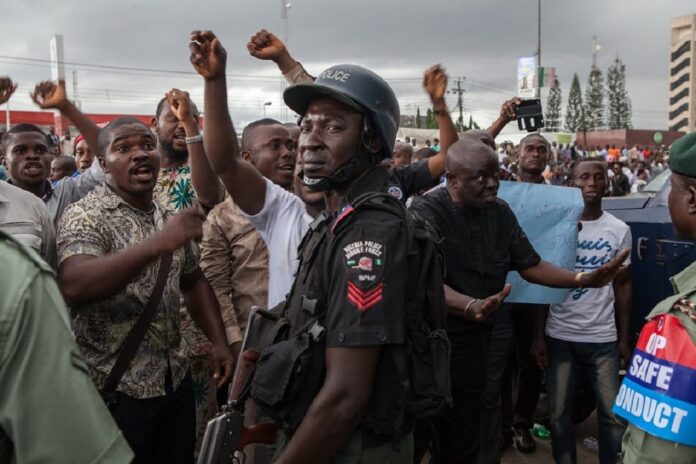Presidential elections play a crucial role in shaping the future of a country, either affirming the policies and actions of the incumbent government and party or repudiating them. This is only true, however, if the elections are free and fair and reflect the preferences and wishes of the majority of the people.
For some reason, Nigerians believe that the 2023 presidential election will be the most crucial in their lifetime; even more important than the 1999 presidential election that marked the return to democratic rule. This may be due to two reasons: the implementation of electoral reforms and the state of the country.
Electoral reforms such as the electronic transfer of results and BVAS, which makes only for digital accreditation of voters, have raised the specter of truly free and fair elections. Additionally, even more crucial, the country is in bad shape. The economy and security are in the doldrums. Inflation is at an all-time high at about 22 percent. kidnapping has become almost routine. The unemployment rate is 33 percent. Interstate road trips are at your risk only. Ninety million Nigerians are estimated to be poor and living from hand to mouth. The country has the highest number of out-of-school children at 20 million. Corruption is endemic and so is banditry….and the list goes on and on.
In eight years, it appears that President Muhammadu Buhari’s administration has not made a significant impact on the numerous challenges facing the country, despite being elected with a promise of ‘change.’ Based on major economic indicators, President Buhari will be leaving Nigeria worse than he met it in 2015; in addition, critics say, to running one of the least inclusive governments in the country’s history, leading to strident complaints of nepotism and provincialism.
Perhaps, it is for the above reasons that young Nigerians seem more invested in this particular presidential election than any other one before it. This so-called Twitter generation or Gen Z appears to have come of age at this important intersection in Nigeria’s history and want to make their voices heard through the ballot. Would they succeed? Would this be the epic coming-of-age story of Nigeria’s young people swaying the outcome of the presidential election in whichever direction they choose? Would this be the generation to save Nigeria by demonstrating the power of the vote?
Nigeria has a large youthful population, which is a significant demographic. It is in fact a country of young people with a median age of 18 years. Nigerians who constitute the youth bracket of 18-34 are about 64 million. This number increases to 97 million (46 percent of the total population) if the definition of youth is expanded to include those between 18 and 40.
So going by the numbers alone, the youth population is formidable and dominates the country. No other age demography even comes close to it. But the challenge with this demography is that the ‘youth identity’ is weak. A typical Nigerian has several identities, including national, religious, gender, ethnic, regional, party, and so on. Of these, the most important forms of identity appear to be ethnic (regional in some cases) and religious for most people. Nigerians often build their persona and relationships around these two forms of characterization and there are ingrained beliefs, attitudes, prejudices, and stereotypes attached to religion and ethnicity.
This has made it difficult to build a true nation, one in which the citizen’s first loyalty is to the country and not to his tribesmen and women, or people who share the same faith as him. This problem preceded Nigeria’s independence. The founding fathers drew political support primarily from people of the same ethnic or regional stock as themselves. Over the years, the issue has only gotten worse as tribalism and nepotism have become major hindrances to the public sector’s efficiency, with jobs being awarded based on these considerations rather than merit.
So, a typical young Nigerian does not consider his youth identity the primary aspect of his life. He tends to see himself first as a Yoruba, Hausa, or Ijaw, and next to that would possibly be his faith. As a result, even though young Nigerians have the numbers, they do not necessarily vote uniformly based on shared concerns and interests. For example, a young person in Zamfara may have very little in common with a young person in Yaba, Lagos, due to differences in their faith, education, outlook on life, and vision. Thus, the presidential candidates they choose to support may vary widely.
Given this lack of national youth identity, it is unlikely that the youth demographic could significantly influence the presidential election results. Instead, young people’s voting behavior would likely be determined by local dynamics, influenced by the society in which they live. Therefore, the youth vote in Kano would probably not come as a unified bloc, but instead would resemble the voting behavior of other age demographics in the state and differ from the vote of a young person in Bayelsa, for instance.
That said, however, the youth identity is gaining traction in the southern part of Nigeria, especially after the Endsars protests led by young southerners. These young people increasingly promote an identity based on mutual interests, concerns, and a shared vision of a prosperous and stable Nigeria. They do not prioritize ethnicity or religion in forming relationships or characterizing themselves, but rather see themselves as young Nigerians above all else.
This jeun-soke generation is highly educated, leans towards the left politically, and tends to come from the wealthiest segment of Nigerian society. Due to their significant influence on social media, especially Twitter, they dominate national online conversations and may appear to speak for all young Nigerians. But they don’t. They are only a vocal minority whose time may well come in the future. But not in time for this presidential election.
Ogunro is Director Research and Strategy at the Future Now Initiative







